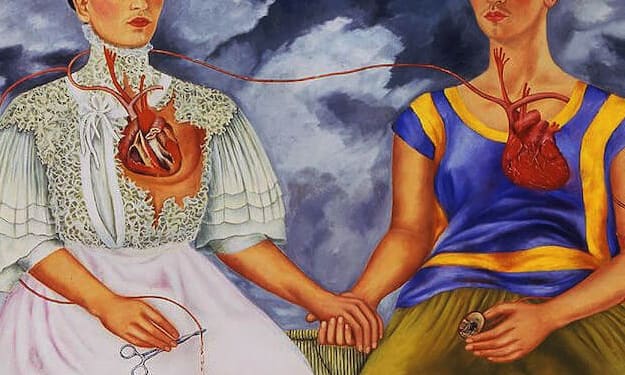Easy Steps To Have Better Discussions
How considering the opposite creates unity

Let’s consider a narrative. Let’s imagine a world where humans were made a bit stupid by their political views. A world where being engaged in political thinking could make people worse at math, or at general critical thinking. Imagine that random people were asked questions such as if a scientist was an expert in science (or not), and right-wing people would systematically consider them an expert only if they thought of climate change as a fad, while left-winged people considered the same scientist an expert only if they really supported the idea of man-made climate change.
Now, let’s imagine another world. In this dystopian universe, people could not believe others’ opinions. People do not accept (consciously and subconsciously) the possibility of being right. And, everyone thought that they were the least times wrong on things compared to anyone else. You see where I am going with this, don’t you? You’re a smart kid after all!
Indeed, these are not dystopian worlds, but the world we live in.
Mistake me not, moon-child, these biases are not only for “lay” people. In fact, academics, scientists, and overall intellectuals alike can easily fall into these kinds of traps. According to research ( I will copy some links at the end of the page so that you can read more about the details), scientifically informed individuals may likely reinforce their previous opinions rather than rethinking them in light of scientific facts. What’s more, the smarter people are, the more they try to reinforce their opinions with logical thinking. Even when they are wrong.
They apply their knowledge base skills to reinforce the rationale for their current ideas. This phenomenon is known as “motivated reasoning”.
It works like this, all of us tend to act more like lawyers than scientists. While “scientists” work out problems by considering both their hypotheses and the possible ways in which these are wrong, lawyers tend to defend their cases. And so do we.

It is indeed difficult to consider the idea of being wrong. At least, I know it is for me. It’s also difficult to just consider that we maybe are wrong. It is in fact so difficult that when presented with facts that go against our opinions, instead of changing our minds we double down and convince ourselves even more of being right.
But it doesn’t have to be that way. We could just exercise considering the lob…again? The opposite! Considering just the idea that the opposite of what we believe in might be true. What would that world look like?
Julia Dhar, the founder of BeSmart, suggests that we can approach ideas and discussions with an open mind, and without trying to convince anyone about our own ideas. In other words, we can train ourselves into the mindset of debating to learn more about things and people, and not to win an argument.
Some interesting findings are also starting to suggest other ways we can turn our ideologically dystopian world into a utopian one. Something called science curiosity seems to be the hero of this real-life narrative.
While the concept of science curiosity can be applied to all reasoned thinking, it has been studied in association with partisan thinking (reasoning motivated by politics). Therefore, whilst I have no significant interest myself in politics, we will discuss it in this terms. In short, scientifically curios people are those that are interested in learning more about the world: they read science books, they listen to podcasts about new topics, and most importantly, they consider many different explanations for important topics they think about. Findings are showing that highly curious (not scientifically smart, but curious) republicans and democrats tend to move slightly nearer in opinions instead of drifting towards the opposite extremes. This is because they take into consideration some aspects of the opposition’s ideas.
To summarise the findings on science curiosity, being highly intelligent does not save you from your own biases. In fact, it might accrue their effect. Being curious on the other hand might help us consider the opposite and reduce the effects of biases in our reasoning. While Brian Resnik at Vox tells us that if we can use these preliminary findings for anything, that would be that political thinking can do with a dose of curiosity, I would like to add that all thinking could do with the same dose of curious thinking.
It’s just one of those things that can help us become better people. Individually, or in society.

Referenced Sources:
There may be an antidote to politically motivated reasoning. And it’s wonderfully simple. — Vox
Julia Dhar: How to disagree productively and find common ground | TED Talk






Comments
There are no comments for this story
Be the first to respond and start the conversation.